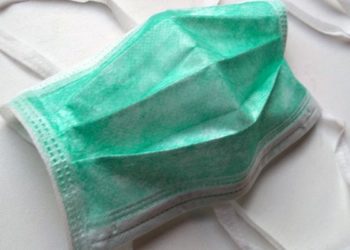Cardiac device implantation complications vary widely among hospitals
1. Cardiac device implantation event complication rates were higher for ICDs than PPMs in this retrospective cohort study.
2. Significant variation between hospitals was found related to cardiac device implantation complications.
Evidence Rating Level: 2 (Good)
Study Rundown: Cardiovascular implantable electronic devices (CIEDs) include devices such as permanent pacemakers (PPMs) and implantable cardioverter-defibrillators (ICDs). CIEDs are effective at treating heart rhythm problems; however, they can also be associated with complications such as infection, pneumothorax and lead dislodgement. Considering the potential harm of these complications for patients, reducing such events is highly important. In this cohort study, the authors assess institutional variation in risk-standardized complication rates (RSCRs) for CIED. The results demonstrated that cardiac device implantation complications vary widely among hospitals. One limitation of this study was that administrative data was utilized to collect results, which may have potential confounders as it is less granular than data collected solely for research. Additionally, the authors acknowledged that they did not count minor complications in the analysis. Overall, this study concluded that while early device-related events are common after CIED implantation, there was significant variability among the hospitals performing the procedure and the risk for complications was greatly related to the hospital rather than whether the device was a PPM or an ICD.
Click to read the study in Annals of Internal Medicine
Relevant Reading: Complications of implanted cardiac rhythm devices
In-Depth [retrospective cohort study]: The study was conducted across 174 hospitals in Australia and New Zealand between 2010 to 2015. The primary outcome was RSCRs and the frequency of major device-related complications either during hospitalization or within 90 days of discharge of the patients. A total of 81 304 patients older than 18 years who received a new CIED between the study time frame participated in this study. The authors utilized a hierarchical generalized linear model to estimate each hospital’s RSCR. Following analysis, it was observed that 8.2% of patients (6664 patients) had a major device-related complication during the study period. Crude risk was higher for ICDs compared to PPMs (10.04% vs. 7.76%). More patients had received PPMs compared to ICDs, with 76.5% of all complications were related to PPMs (5098 vs. 1566 for ICDs). Furthermore, significant variability was observed regarding RSCR among hospitals, where the rates varied from 5.4% to 14.3%.
Image: PD
©2019 2 Minute Medicine, Inc. All rights reserved. No works may be reproduced without expressed written consent from 2 Minute Medicine, Inc. Inquire about licensing here. No article should be construed as medical advice and is not intended as such by the authors or by 2 Minute Medicine, Inc.







